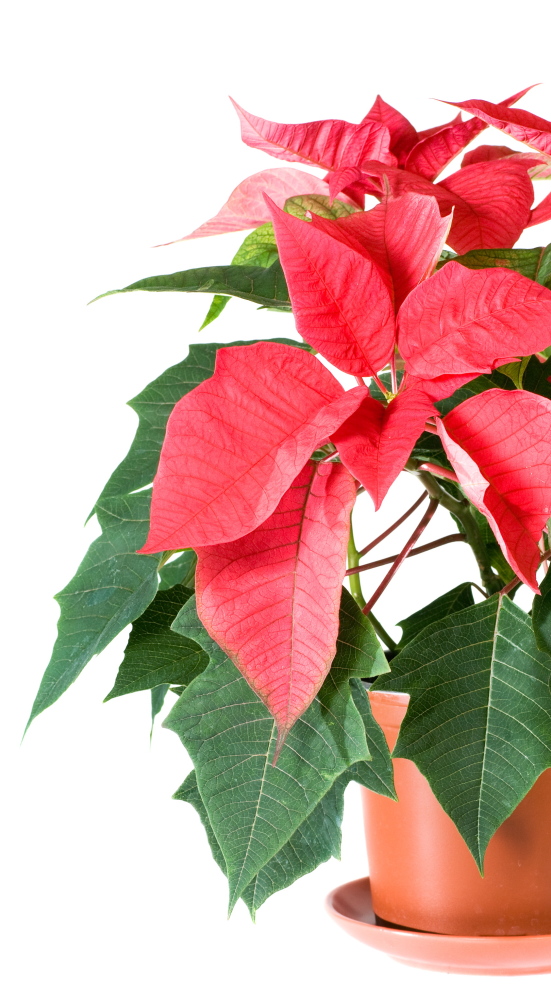From now through the end of February, poinsettias can brighten your homes with their red, pink or white bracts and green foliage. The bracts are actually special leaves – the flowers themselves are small, almost insignificant.
You can buy poinsettias anywhere, and they are inexpensive. But your heart will feel better if you buy them from the Morrison Developmental Center in Scarborough.
“Ours are grown right here in Scarborough with cuttings purchased in August,” said Kevin Kearns, director of Morrison’s Seedlings program. “Ours are grown with no pesticides, while most are heavily dependent on pesticides to keep white flies down. We use biocontrols.”
In addition, Morrison’s plants are grown by special needs students – members of the Seedlings program that Kearns directs – and the profits benefit the center.
Morrison charges $8.99 for a 6-inch pot with one Poinsettia stem and $12.99 for a 7-inch pot with two stems. Buy them from 8:30 a.m. to 4 p.m. Monday through Friday or find them (and crafts) at an open house on Saturday from 9 a.m. to 2 p.m.
If you plan to compost the poinsettias in February, all they need until then is watering when they get dry.
As a challenge, some people try to produce the colorful bracts a second year. Not easy, Kearns said, because poinsettias depend on light changes to produce the bracts and blooms, so the artificial lights in our homes – ordinary lamps and such– prevent them from reproducing. Even if you solve that problem, you have to cut the poinsettias back in late February or March to three leaves per stem, leave them in a sunny window, water and fertilize every two weeks, take them outside when night temperatures will be 50 degrees or above, bring them inside in fall when temperatures drop below 45 at night, keep them in a sunny window with no artificial light at night, and hope that all this effort pays off in cheery new bracts next December.
It seems a lot of work to save $8.99.
Kearns says it is a myth that poinsettias are poisonous. They aren’t. Rather, it’s that many poinsettias are grown with synthetic pesticides, which can make them poisonous. But if they are grown with no pesticides, they are perfectly safe for kids and pets.
— TOM ATWELL
Copy the Story LinkSend questions/comments to the editors.



Success. Please wait for the page to reload. If the page does not reload within 5 seconds, please refresh the page.
Enter your email and password to access comments.
Hi, to comment on stories you must . This profile is in addition to your subscription and website login.
Already have a commenting profile? .
Invalid username/password.
Please check your email to confirm and complete your registration.
Only subscribers are eligible to post comments. Please subscribe or login first for digital access. Here’s why.
Use the form below to reset your password. When you've submitted your account email, we will send an email with a reset code.